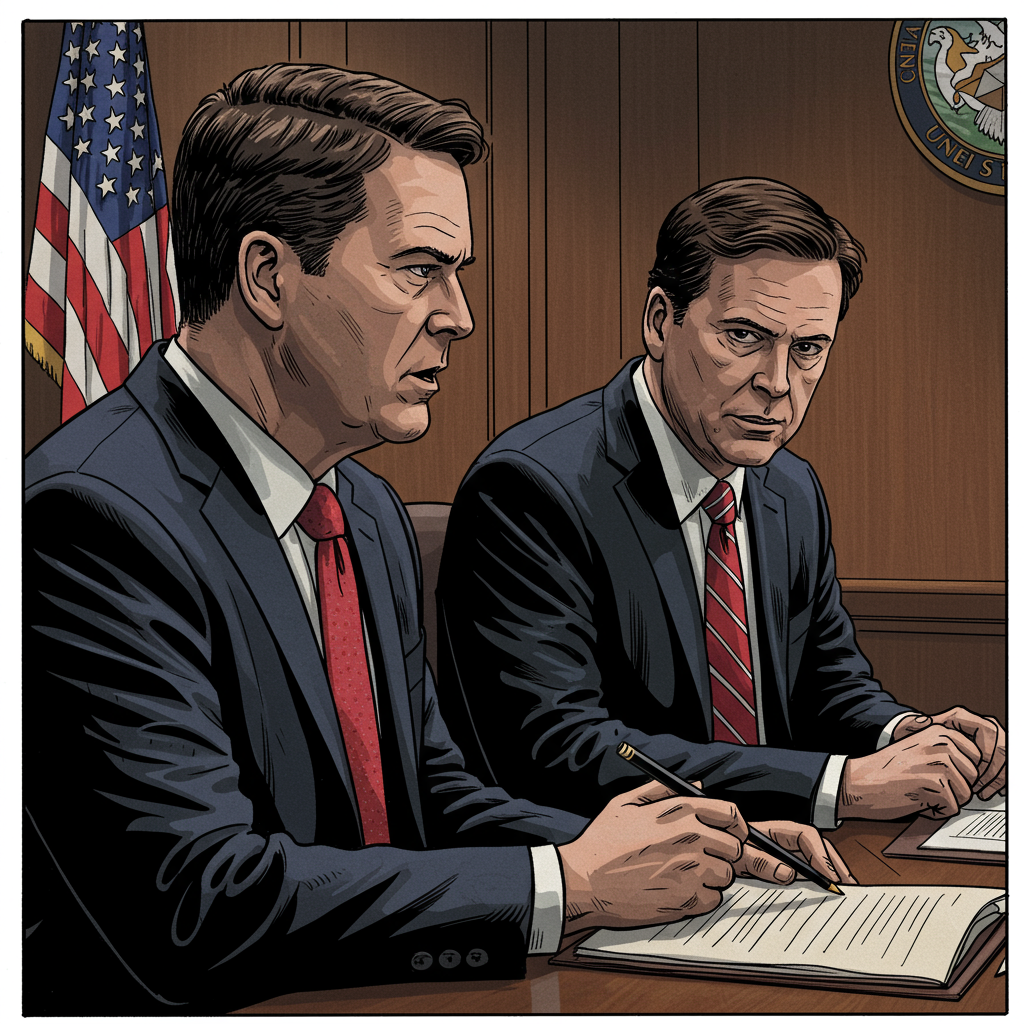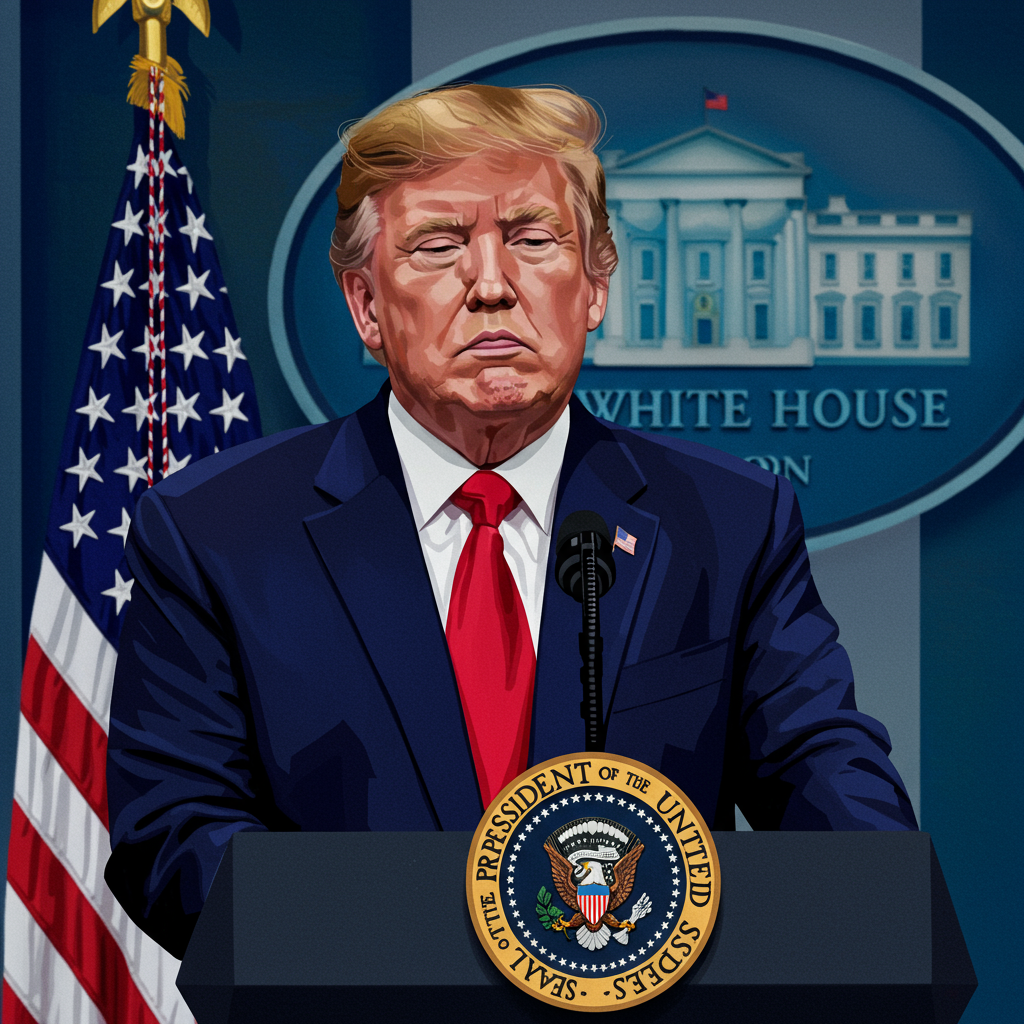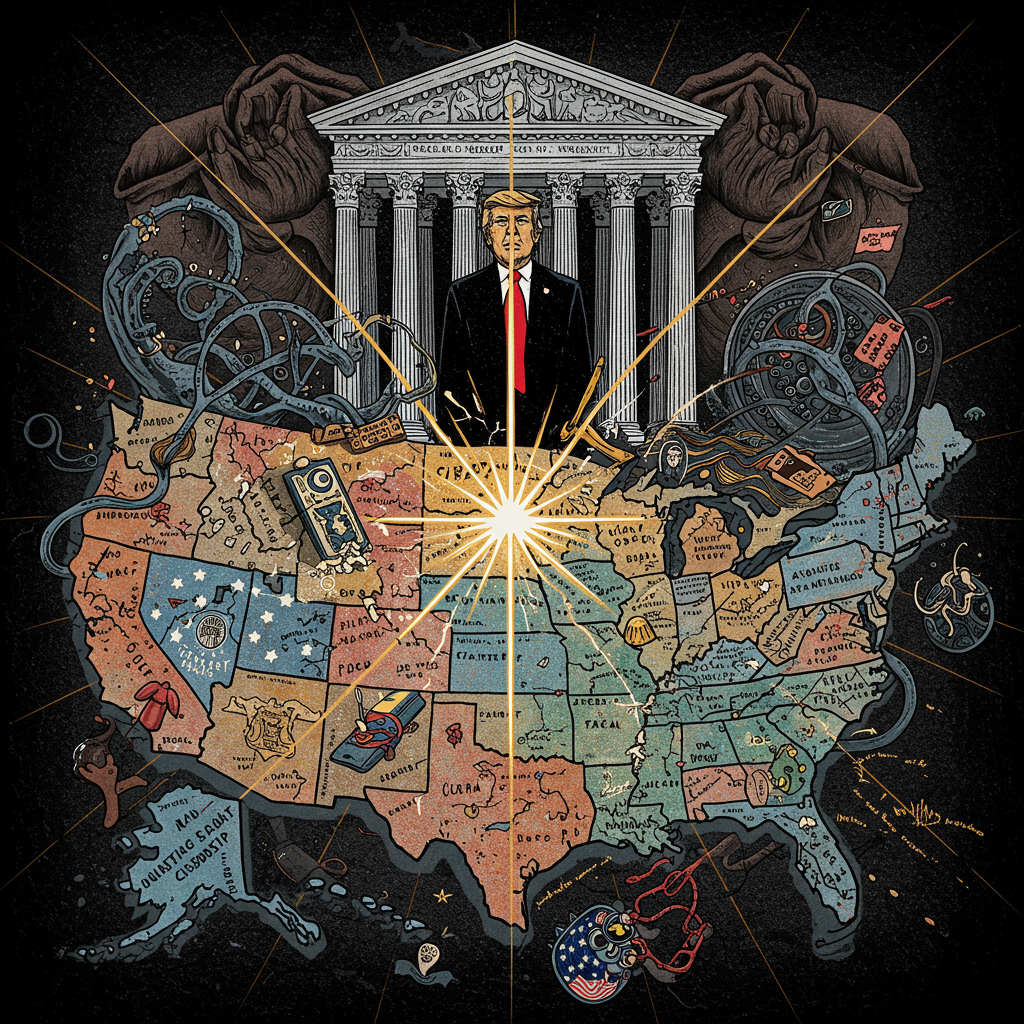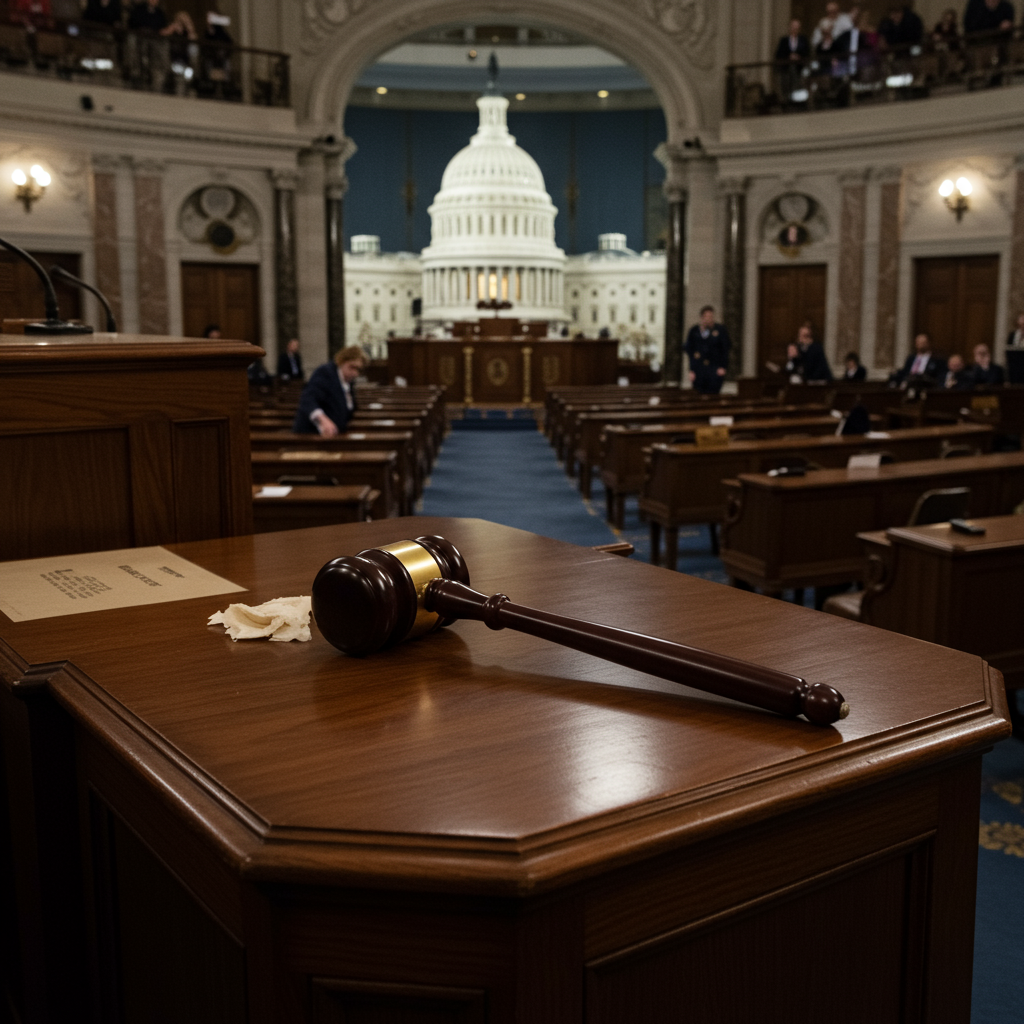The legal landscape is buzzing with the news: Patrick Fitzgerald, a name synonymous with unwavering integrity and relentless prosecution, has stepped out of retirement. His mission? To defend his longtime friend, former FBI Director James Comey, who faces a politically charged indictment. This isn’t just another legal case; it’s a high-stakes encounter, drawing a legendary figure back into the national spotlight.
Fitzgerald’s reputation precedes him. He has dismantled organized crime, convicted corrupt governors, and prosecuted significant international terrorism cases. His decision to represent Comey speaks volumes about their deep, enduring friendship and mutual trust. “Comey implicitly trusts Pat Fitzgerald. They’ve been best friends, or really good friends, for years,” noted Robert Grant, a former FBI special agent who worked with Fitzgerald in Chicago. This profound loyalty brings Fitzgerald back to the forefront of a legal and political battle.
Patrick Fitzgerald: A Legacy of Unyielding Justice
For over a decade, Patrick Fitzgerald served as the U.S. Attorney for the Northern District of Illinois, leaving an indelible mark. Appointed by President George W. Bush, he cultivated a formidable reputation as a scrupulous, hard-charging prosecutor. In Chicago, Fitzgerald is widely considered a legend. He systematically disrupted the pervasive backroom deals that long plagued Illinois politics.
His tenure was nothing short of remarkable. Fitzgerald’s prosecutions successfully brought down the notorious Chicago mob through “Operation Family Secrets,” a landmark case exposing 18 previously unsolved murders. He secured convictions against two consecutive Illinois governors—Republican George Ryan and Democrat Rod Blagojevich—sending both to prison. He also obtained a conviction against a top donor to Barack Obama during his presidential campaign. Fitzgerald jailed many “untouchables” within Chicago and Springfield’s political elite. Beyond local corruption, he pursued complex international cases, including a Hamas funding scheme and major terrorism investigations. Notably, he was the first to bring a case against Osama bin Laden in 1996, years before the 9/11 attacks.
The Eliot Ness of Chicago with a Harvard Degree
When Fitzgerald arrived in Chicago in 2001, he was immediately dubbed “Eliot Ness with a Harvard Law degree.” His former colleagues laud his dedication to justice. Patrick Collins, a former federal prosecutor who led the case against Governor George Ryan, described Fitzgerald as “out of central casting to be the incorruptible guy that was in aggressive pursuit of the facts.” Collins added that Fitzgerald always had his team’s back, ensuring cases rose or fell solely “on the facts.” This commitment to objective legal process, rather than political influence, defined his career.
Fitzgerald is known for his unassuming nature, a stark contrast to Comey’s more public persona. Raised in Brooklyn as the son of a hotel doorman, Fitzgerald, an Amherst College and Harvard Law graduate, possesses a “steel-trap mind” and a photographic memory, according to Robert Grant. Grant noted, “There’s a little bit of hubris you see in Comey that you don’t see in Pat.” Fitzgerald shuns the limelight, famously appearing uncomfortable when humorously dubbed “prosecutie” or named in People magazine’s “sexiest men alive” issue during the Libby case. He preferred to focus on the intricate legal work rather than public attention.
James Comey: A Career Marked by Independence and Controversy
James Comey’s career is equally storied, characterized by moments of intense public scrutiny and a fiercely independent streak. His path often put him at odds with powerful political figures. Most notably, Comey served as Deputy Attorney General during the George W. Bush administration, where he famously led a “secret rebellion” of Justice Department lawyers. This nine-month internal conflict was sparked by grave concerns over the legality of the administration’s harsh interrogation techniques and a warrantless wiretapping program.
The most dramatic incident unfolded in March 2004 when Comey raced to a hospital. His goal was to prevent presidential aides from reauthorizing the controversial spying program with an ailing Attorney General John Ashcroft. This dramatic standoff, backed by threats of mass resignations from top Justice Department officials, ultimately forced President Bush to accept a compromise. This event solidified Comey’s image as a principled figure willing to challenge authority.
High-Stakes Decisions and Political Collisions
Comey’s later role as FBI Director continued this pattern of high-stakes decisions. He publicly clashed with President Trump, who eventually fired him during his first term. One of Comey’s most controversial actions involved holding a news conference days before the 2016 presidential election. During this, he disclosed new findings from an investigation into Hillary Clinton’s emails. Critics viewed this as an unprecedented intervention in an election, while supporters defended it as a necessary act of transparency.
Unlike Fitzgerald, Comey frequently engages on social media, even posting a video on the day of his indictment vowing to challenge President Trump. The stark differences in their personal styles—Comey’s public assertiveness versus Fitzgerald’s quiet determination—make their partnership intriguing. Comey is often seen as someone who “casts himself as the hero,” a perception some powerful Washington lawyers hold, contrasting with Fitzgerald’s humble demeanor. However, both men share a deep-seated commitment to justice, albeit expressed in distinct ways.
The Looming Political Firestorm
Fitzgerald’s decision to represent Comey throws him into what could become a significant political firestorm. President Trump had explicitly called for charges against Comey via social media. The indictment was ultimately secured by Lindsey Halligan, the interim U.S. attorney in the Eastern District of Virginia. Halligan, who reportedly lacks prior prosecutorial experience, previously served on Trump’s defense team in the Mar-a-Lago classified documents case. Notably, career prosecutors in her office reportedly advised that probable cause for an indictment did not exist.
This context highlights the intensely politicized nature of Comey’s legal challenge. Fitzgerald’s prior experiences navigating politically charged investigations, like the CIA leak case involving I. Lewis “Scooter” Libby, are highly relevant. In that case, Fitzgerald faced criticism from conservatives who deemed him “overzealous.” President Bush commuted Libby’s sentence, and President Trump later pardoned him. Fitzgerald, however, staunchly defended the prosecution, stating Libby “lied repeatedly and blatantly” about matters central to the investigation. This unwavering stance, even in the face of political pressure, underscores his reputation.
Unwavering Integrity Across Administrations
Despite criticisms in some high-profile cases, Fitzgerald’s colleagues consistently defend his apolitical approach. They highlight his service under presidents from both parties as proof. “I worked with him for nine years. I have no idea if he’s a Republican or a Democrat, and it quite frankly never came up. He’s entirely about justice and doing the right thing,” affirmed Eric Sussman, a defense attorney who worked under Fitzgerald. Sussman cited Fitzgerald’s prosecution of media baron Conrad Black—another figure later pardoned by President Trump—as evidence of his non-partisan commitment.
Sussman credits Fitzgerald with professionalizing the U.S. Attorney’s office, ensuring that “everyone underneath him operated with the same professionalism, integrity and commitment to doing the right thing.” This ethos extended to how Chicago perceived the office. Fitzgerald’s return to the national stage for Comey is a powerful testament to personal loyalty and a belief in due process, regardless of political ramifications. His formidable legal prowess and a career built on incorruptibility make him a formidable advocate for his embattled friend.
Frequently Asked Questions
What makes Patrick Fitzgerald a “legendary” prosecutor?
Patrick Fitzgerald earned his legendary status through a distinguished career as the U.S. Attorney for the Northern District of Illinois. He successfully prosecuted the Chicago mob, convicted two consecutive Illinois governors (George Ryan and Rod Blagojevich), and brought the first case against Osama bin Laden. Nationally, he is known for his role as special prosecutor in the CIA leak investigation that led to charges against I. Lewis “Scooter” Libby. His relentless pursuit of justice, often against politically powerful figures, and his reputation for being incorruptible solidified his legacy.
Why is Patrick Fitzgerald defending James Comey?
Patrick Fitzgerald is defending James Comey primarily due to their deep, longstanding friendship and mutual trust. They have been “best friends, or really good friends, for years,” according to former FBI Special Agent Robert Grant. Fitzgerald, who had retired from his top partner position at a law firm, is coming out of retirement out of profound personal loyalty to Comey as he faces a politically charged indictment. This decision underscores the strength of their personal bond above professional considerations.
What unique qualities does Fitzgerald bring to Comey’s defense?
Fitzgerald brings a unique blend of unparalleled prosecutorial experience, a reputation for uncompromising integrity, and a fierce independence to Comey’s defense. His “steel-trap mind,” photographic memory, and ability to dissect complex legal issues are well-documented. Moreover, his track record of successfully navigating highly politicized cases, often against the powerful and connected, positions him as a formidable advocate. His apolitical approach to justice, consistently praised by former colleagues, ensures he will focus purely on the facts and legal arguments, rather than political pressure.
In an era of intense political polarization, Patrick Fitzgerald’s return to the legal arena to defend James Comey represents a compelling intersection of personal loyalty, established legal prowess, and significant national interest. His career highlights a steadfast commitment to the rule of law, regardless of the political affiliations of those he prosecuted or, now, those he defends. This high-profile legal battle will undoubtedly test the formidable reputations of both men, casting a spotlight on the enduring power of integrity and friendship in the face of political adversity.




